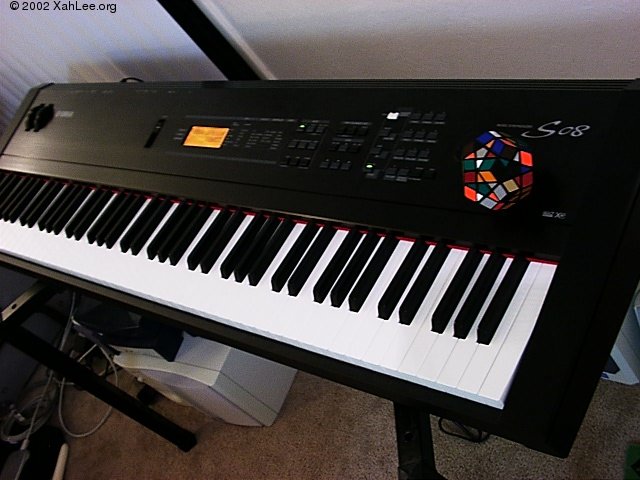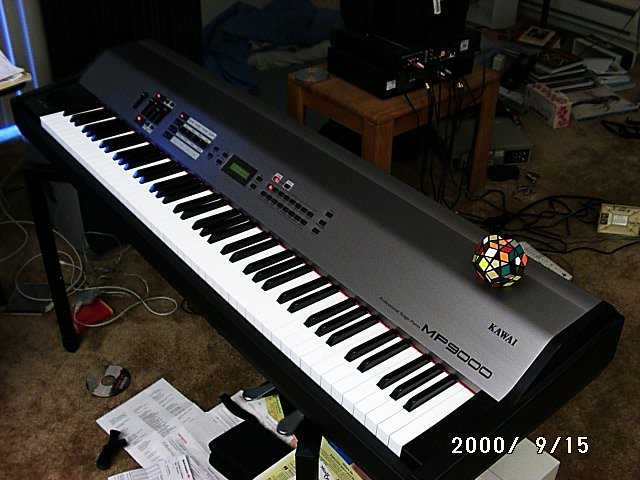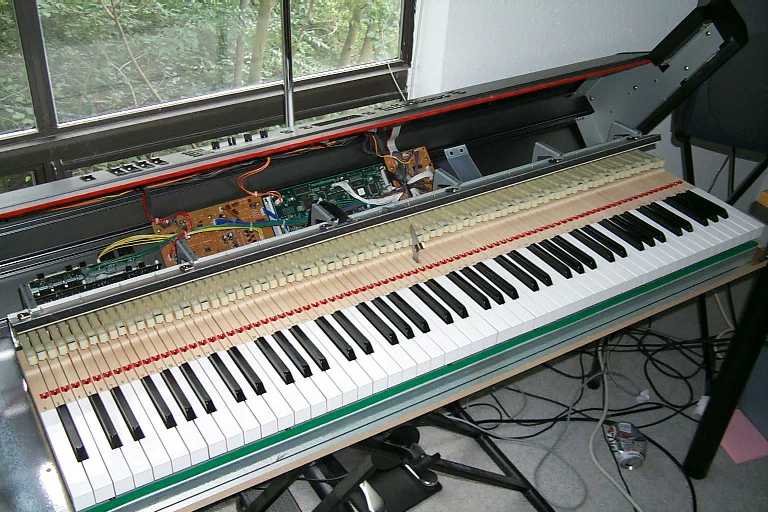Piano Keyboard Action: Comparison of 4 Digital Keyboards
Today i spent 2 full hours at a local Guitar Center on 3 keyboards:
- Yamaha p120 digital piano.
- Roland FP3 digital piano
- Yamaha S08 synth
All are priced about $1100.
I played scales for full 2 hours. Of major and minor and chromatic scales from all types of keys and from pianissimo to Fortissimo and slur to staccato, in sync or out of sync, symmetric strength or asymmetric, crescendo and diminuendo, but without crossing hands or independent-hands yet as my skill haven't reached that level. Occasionally one-hand solo. Playing scales on these keyboards for 2 hours with my Sennheiser HD 570 $150 headphone. I have some conclusions.
The Yamaha P120 is total crap. It has a 3-level adjustment for velocity sensitivity. No matter what, it is impossible to play pianissimo on this keyboard. This is the keyboard to ruin budding prodigies. The one to wreak havoc on pianists. The gift for your stepsons. The choice of brand-name conscious brutes.
The Roland FP3, upon immediate touch i find it a joy. Fine pianissimo no problem. I think a (classical) pianist can be more expressive on this keyboard than even my feel-touch renowned Kawai MP9000.

The Yamaha s08 is a beast. It is not a keyboard designed to emulate the so-called acoustic piano that has a myriad maintenance and economic flaws, but just a modern one usually called synthesizer. Its keyboard action does not have the problem of being lopsided heaviness as other digitals and acoustic pianos do. The resistance is even from the entire range of 88 keys from B♭♭ to B♯. The keyboard touch is a bit lighter than p120 or FP3 or Kawai mp9000, but totally unlike some of the fly-weight that are more or less organ keyboard with solid look (such as Alesis 8.1 synth.). As a minimally priced quality pure musical instrument for classical pianists, i think it is all right, especially those who has not been finger-conditioned by traditional piano instrument made of wood and string, which involves extremely complex and delicate hammer-action mechanism that comes with a plethora of inflexibilities and headaches and susceptibilities from weather to tuning to immobility to dent on the floor to elephantine size to a kick in the leg, not to mention its impractically exorbitant price.
(Note: Not to confuse Yamaha s08 with s80. The s08 is a low-end synth, while s80 is a fancy synth costing about 2 times more, and its key-action has a particularly idiosyncratic touch-feel that's weird but also nice. Photo of s80 can be seen here: Piano Keyboard Action: Kawai MP9000.)
Since i own a Kawai MP9000, let me also talk a bit of its keyboard action feel for comparison.

The mp9000 is renowned for its key-actions, of which the action mechanism is based on emulating acoustic piano's hammer actions. One entrepreneurial bloke actually opened it up and took photos of its innards on the internet.

As it is, the mp9000 has won rave reviews mostly focused on its piano-like key action. It is this feel, that i bought it in the first place. Recently i started to get serious about playing piano and started to practice scales. I hammered on the keys daily, exercising the finest control of my fingers. Of the past 2 months, i have occasional chances visited a local community college to relive the feel of true hammerclaviers. Although among digitals i've tested, the mp9000 is perhaps the closest in touch-feel to acoustic pianos, but this keyboard does not necessarily have the best ability to express music among electronic keyboards, and certainly not comparable to hammerclaviers with their elaborate hammer action mechanisms. In short, how the key-touch likeness to acoustic pianos does not equate to how well a classical pianist can perform on it. For example, i feel that the Roland fp3 beats the mp9000 in expressiveness even though its key-action does not feel as “genuine” with respect to acoustic mechanism. One simple test i do is to play scales slur presto with the softest touch. This is easier executed on Roland FP3 than Kawai mp9000. I need to test more on the Roland to be fair.
The above are my opinions on the keyboarding aspect alone, which i consider to be the sole or the most important factor in choosing A electronic keyboard for playing classical pieces. (which is what i'm interested.)
Among other reasons, i think i'm going to buy the Yamaha s08, but i'm going back for more testing this week. My Kawai 9000 is to be sold.
PS all of them have the most hateful abrupt sound color change on bass section when playing chromatic scale. I love running the chromatic scale a la Liszt's Chasse-Neige. Please see Music of Piano Scales and Abrupt Change of Timbre in Chromatic Scale
Piano Keyboard Action
- Piano keyboard actions: Acoustic vs Modern Weighted
- Weighted keyboard actions: Digital Piano vs Synthesizer
- Weighted keyboard actions: a comparison of 4 digital keyboards
- Piano keyboard actions: MP9000 problems and misc notes
- Digital Chromatic Abruption
- Piano Scale Practice; Liszt Transcendental Etude #12
- Kawai MP9000 Key Action
- Chopin vs Liszt